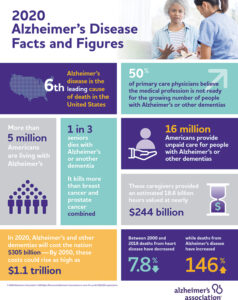Editor’s note: The following column was originally published in the Baptist and Reflector in July of 2019. It was reprinted in the current edition of the B&R in recognition of Alzheimer’s Awareness month.
By Joe Sorah
Compassion Ministries Specialist, TBMB
 “There are worse things than death.”
“There are worse things than death.”
I had heard that expression over the years from church members as I walked with families through terminal illnesses. However, the expression became real as we watched my father go through Alzheimer’s.
My mother had expressed her concerns about my dad. He just wasn’t himself, she said. She talked about his forgetfulness, his mood swings, and his inability to navigate the car as he once did. His disease hit home for me in one memorable conversation. He asked me to come outside to talk. The conversation went as follows:
“Who is that Margaret in there?”
“Dad, that’s your wife.”
“Who is that other Margaret?”
“What other Margaret? I don’t know what you are talking about. There’s just one Margaret, your wife.”
“Do we have children?”
“Yes, you have four children together.”
“Are you one of my children?”
“Yes, dad, I’m your son, Joe.”
My heart broke at that point. I knew our lives would never be the same and they weren’t. Over the next several years, we watched as my dignified, knowledgeable father lost his mind, his health and ultimately his life.
 Our family is not the only family in Tennessee to be touched by dementia/Alzheimer’s. More than 110,000 Tennesseans have dementia/Alzheimer’s. An estimated 400,000 Tennesseans are caregivers for someone with dementia or Alzheimer’s. Alzheimer’s is the sixth leading cause of death in the U.S.
Our family is not the only family in Tennessee to be touched by dementia/Alzheimer’s. More than 110,000 Tennesseans have dementia/Alzheimer’s. An estimated 400,000 Tennesseans are caregivers for someone with dementia or Alzheimer’s. Alzheimer’s is the sixth leading cause of death in the U.S.
I have been asked for advice for families walking with a family member through dementia/Alzheimer’s and I offer these suggestions:
(1) Learn all you can about dementia/Alzheimer’s. Early in our journey, we sought the advice of a counselor who patiently taught us and answered our questions. There are excellent websites available such as www.alztennessee.org. We were encouraged to read the book, The 36-Hour Day.
Each of these resources proved to be helpful in gaining a better understanding of what we were facing.
(2) Give yourself permission to grieve. Normally we think about grieving after someone dies. However, with a terminal illness like Alzheimer’s, grieving starts as soon as you hear the diagnosis. We found ourselves going through all the stages of grief — denial, anger, bargaining, depression. Acceptance came for me after several visits with my dad in the Alzheimer’s unit. His memory of the family was gone. His body was a shell of what it used to be. His dignity had been robbed. I sat in my car and wept, praying to my Heavenly Father to please call my earthly father home to his new body with no suffering.
(3) Give yourself permission to laugh. I understand that some who have Alzheimer’s can become violent and say some rather vulgar things. My dad did not go in that direction. He became even more joyful, kind and loving. He would say the funniest things and laugh. I chose to laugh with him. I will share one event that I found humorous. My dad was a long-time Baptist pastor. He thought the Alzheimer’s unit was his church. One day as I was visiting, I noticed he seemed a bit aggravated. When I asked him what was wrong, he said he had been trying to call his “church” to order for a business meeting, but the people would not come to order.
(4) Rejoice in God’s faithfulness. In my father’s disease, God proved Himself faithful. Though my dad lost his memory of everyone else, he never lost the sense of who he was. The staff at the unit called him “Pastor” and he kept on serving as a pastor to that unit. He sang every word of every hymn. He quoted Scripture. He gave the blessing over the meal. He ministered to those in need. We were told how as one patient was being taken out to go to the hospital, my dad bowed his head and prayed the most beautiful prayer for the person. In all these things, I saw God’s faithfulness and just a glimpse of the hope that dwelt within my father.
There are some things worse than death.
Alzheimer’s was one of those things for our family, but through it all, we found God’s grace to be sufficient. B&R
